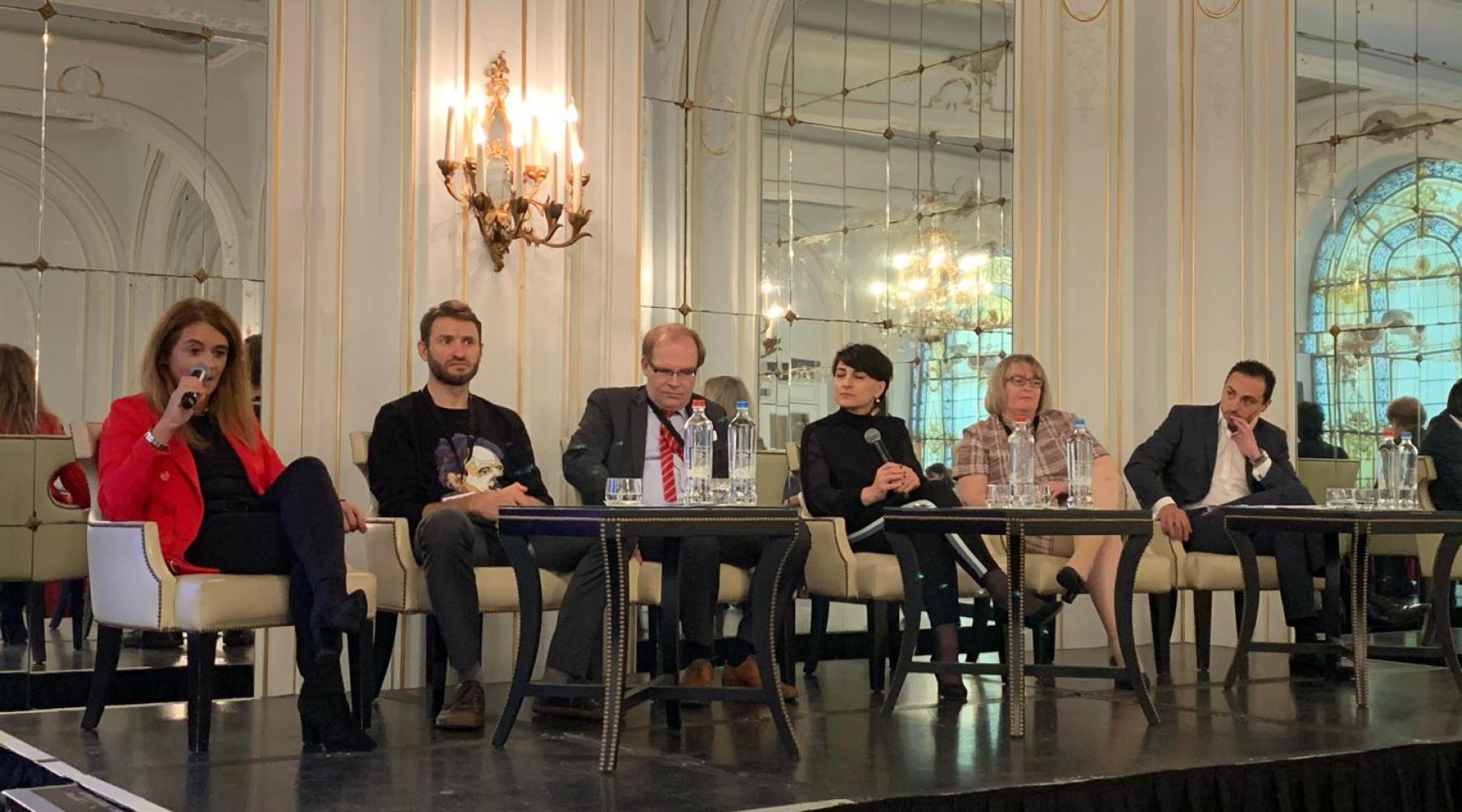
The 17th October, IRG, gathered European Telecommunications National Regulatory Authorities’ Heads and key EU Artificial Intelligence top experts to discuss on the next AI regulatory challenges in the next coming months. The internal workshop was opened by Mr. Jeremy Godfrey ComReg Commissioner and IRG/BEREC Chair 2019, with a first panel focusing on what is AI and what does it imply from the regulatory perspective.
The first panel chaired by Mr. Klaus Steinmaurer, Executive Director Austrian Telecommunications and Postal Services (RTR-GmbH) featured AI’s technology and its relation with 5G, Big Data and IoT technologies. Mr. Florian Damas Nokia’s Policy and Regulatory Affairs Director, focused on the networks’ autonomy, the algorithm characteristics and the business’ impact while Ms. Eline Chivot, Head of Brussels Office and Senior Policy analyst for the Center of Data innovation, addressed the data key implications for AI, AI’s global impact to the global economy and the GDPR impact on society since 2018.
EDPS, Supervisor Mr. Wojciech Wiewiorowski, presented the role of EDPS and the clear links of AI with big data as well as the declaration of ethics and data in artificial intelligence urging to adopt the motto “Neither rashly nor timidly”. On the AI current and dynamic regulatory perspectives, Ms. Alexandra Haas Head of Analytics, Automation & AI at DETECON Switzerland, provided a deeper insight on the AI's existing applications and current technologies as well as the specific use in the telecommunications sector and its possible regulatory impacts. On the regulatory side OECD’s Ms. Verena Weber, Head of the Communication Infrastructures and Services Policy Unit at OECD's Directorate for Science, Technology and Innovation, showcased specific AI global countries’ best practices national approaches and the possible articulation towards optimal cooperation, as well as presenting OECD’s AI principles document adopted by 42 countries in 2019.
The second panel, chaired by Ms. Lindsey Fussell, Group Director at Ofcom, included national cases from several European countries cases including Lithuania introduced by Mr. Elijus Civilis, Vice-Minister, from the Ministry of Economy and Innovation, who presented Lithuania’s artificial intelligence plan enabled by the digital transformation road-map and the data architecture gathered at national level. Malta’s Task Force Chairman Mr. Wayne Grixti, focused on Malta’s ethical AI framework based on the recommendations of the OECD and illustrated how the country supports open data and 5G, as well as it fosters innovation, sets standards and raises awareness amongst citizenship with specific targeted AI education. Mr. Mikael Nyberg, High representative of the EU Finland’s Presidency of the Council, raised the policy debate on the data principles, the data’s human-centric aspect, the data access, and data sharing. Mr. Nyberg also presented outputs from the open data public consultation in Finland and the next steps at the Council of the European Union meetings in December. On the EU combined forces and the present leverage-approach between the EU and the Member States, Ms. Ieva Martinkenaite, EU High Level Expert Group on AI and Telenor Group’s Vice-President for AI and IoT Business Development, presented the Artificial Intelligence EU AI High Level Group goals and their approach to ethics and competitiveness and focused on how they aim to bring ethics into practice for companies of any size as well as fostering AI business performance. Summing up the European initiatives, the European Commission Director on AI and Digital Industry, Ms. Lucilla Sioli presented the EU AI Coordinated Plan states, the structure of the research platform, the references and testing facilities combined with co-financing and the AI targeted increased competitiveness with the co-funding of Digital Innovation Hubs.
The conference was closed by Mr. Stephan Netzle, President of ComCom who encouraged all participants to strive for the values of Europe: diversity, individuality, self-responsibility, and freedom of choice when advancing and implementing the technology for Artificial Intelligence.